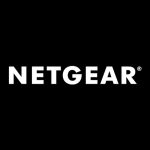In February, the US Department of Justice released a document. The document contained information about a government attack. The attack targeted locations important to Russia.
IN THIS ARTICLE
Consumer Routers Targeted
Unlike the many other state-sponsored attacks using malware to compromise high-profile targets, instead, this campaign leveraged flaws and misconfiguration in home and small office routers to allow unauthorized access to sensitive data or to compromise user privacy. This incident serves as a stark reminder of the critical importance of securing routers against digital attackers with or without a state-sponsored agenda.
Routers: Understanding the Risks
Routers are a prime target for cyber attackers because they are the gateway between your home network and the vast and often hostile expanse of the internet. Routers are always exposed to the Internet, and moving significant amounts of highly valuable data, making them actively sought after by threat actors.
Fortunately – most of the traffic that goes through a router is encrypted, however, hackers often have access to such specialized equipment that can an attacker gain access to local network resources, redirect traffic to phishing sites, or use your Internet connection as a proxy for all sorts of illegal activity. This is why keeping your router safe should become the number one priority. Here are a few tips and tricks to beef up your router’s security with a minimum of effort.
Tips to Protect Your Router from Bots & Hackers

Keep Firmware Updated:
Regularly check for firmware updates provided by your router manufacturer and promptly install them. These updates often include security patches that address known vulnerabilities and enhance the router’s overall performance and stability. When shopping for a router, choose a brand that takes security seriously and offers firmware updates for security issues discovered throughout the product’s lifetime.
Change Default Credentials:
One of the most common router security oversights by end-users is neglecting to change the default login credentials (username and password) for your router’s administrative interface. Replace these default credentials and weak passwords with unique, strong passwords to prevent unwanted remote connections to your device.
Enable Strong WiFi Encryption:
Ensure that your router’s WiFi network is encrypted using a robust WiFi security protocol such as WPA2 or WPA3. For more information learn more on how to set WPA3 on your router. Use a strong passphrase for the Wi-Fi password, comprising a combination of uppercase and lowercase letters, numbers, and special characters. https://kb.netgear.com/000060425/How-do-I-enable-WPA3-security-on-my-NETGEAR-router
Disable Remote Management:
Disable remote management features on your router unless absolutely necessary. Remote management functionality can potentially expose your router to remote exploitation, increasing the risk of unauthorized access. A strong password can help reduce the risks of remote management.
Implement Network Segmentation:
Segment your network into separate subnets for different devices or user groups. This practice prevents hackers from moving between different parts of a network, reducing the impact of a security breach. Make sure you have a guest network for visitors or for IoT devices that you don’t fully trust.
Choose a router with built-in security:
Some routers such as the Nighthawk and Orbi series ship with built-in cyber-security protection to detect and block attacks against devices that are part of the local network. The Netgear Armor technology also ensures that local devices are scanned for vulnerabilities so you can get an overview of your network’s security.
By implementing these proactive measures and staying informed about emerging threats, you can bolster the security of your router and safeguard your network against ever-increasing modern cyber attacks. Remember, protecting your router is not just about securing your internet connection —it’s about safeguarding your digital livelihood and ensuring peace of mind in an increasingly connected world.
Orbi and Nighthawk: WiFi 7 WPA3 Security
One of the best ways to protect your network is to upgrade to the latest WiFi technology platform. The advanced WiFi 7 Nighthawk and NETGEAR Orbi Mesh Systems can take advantages of advanced certified WiFi WPA3 Encryption. WPA3 or WiFi Protected Access Version 3 uses 192-bit encryption algorithms codes to ensure your WiFi data cannot be eavesdropped upon. Additionally, the latest Orbi Systems and Nighthawk Routers receive regular Firmware updates to enhance product features and protect against vulnerabilities. They can also protect your connected devices with optional NETGEAR Armor.
What is NETGEAR Armor?
NETGEAR Armor powered by Bitdefender is an advanced multi-layer cyber security solution that protects not only your network but individual devices as well.




